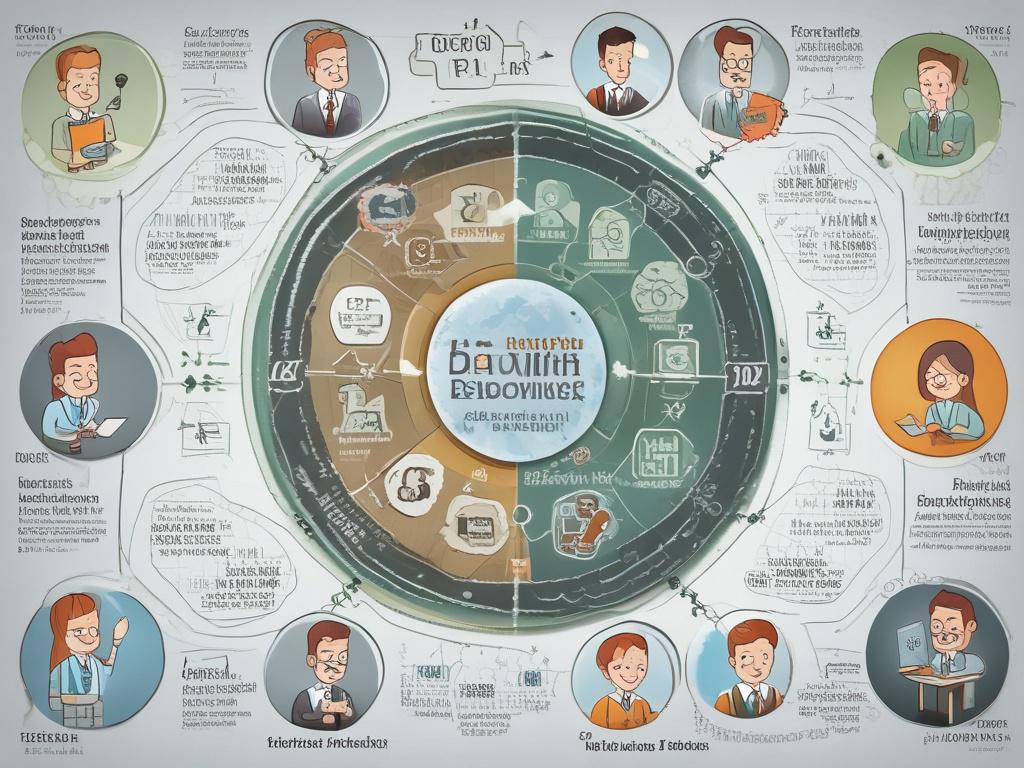Welcome! Check out our latest news.
Read more
In today’s fast-paced world, small businesses must find innovative ways to stay ahead without overextending resources. Enter AI, your silent, 24/7 partner that never takes a day off. With the right tools, you can automate a host of repetitive tasks, from managing emails to generating social media content, allowing you to reclaim precious hours for strategic initiatives. AI-powered solutions like Notion AI, ChatGPT, and Zapier are revolutionizing the landscape for solopreneurs and small teams, slashing administrative time by up to 50% and significantly improving customer response rates.
Imagine a small boutique owner who uses AI to effortlessly sort customer service emails, create daily content plans, and generate weekly sales reports. What once consumed hours of their day now happens in mere minutes, showcasing the transformative power of these technologies. AI doesn’t replace you; it multiplies your impact, enabling you to focus on what truly matters. Are you ready to automate and scale your business smartly? Join us as we explore how small businesses can harness the potential of AI to boost productivity and drive success.
Unlocking the potential of AI for small business success
In today’s fast-paced world, small businesses face immense pressure to operate efficiently while staying competitive. By integrating AI into daily operations, these businesses can unlock significant potential for growth and success. AI acts as a silent partner, working tirelessly around the clock to enhance productivity without the need for additional resources. Whether it's managing inventory or analyzing sales data, AI tools enable small business owners to focus on high-impact strategies that drive profit, leaving mundane tasks to automated systems.
Moreover, adopting AI solutions tailored to specific business needs allows small enterprises to streamline processes and reduce administrative burdens. For example, a small boutique owner can use AI to sort through customer inquiries swiftly, create insightful sales reports, and generate targeted marketing content. This transition from manual tasks to automated workflows not only saves time but also empowers business owners to make informed decisions quickly, driving overall business growth. Embracing AI technology positions small businesses to thrive in their respective markets while maximizing the value of their time and efforts.
Streamlining operations with smart automation tools
For small businesses, time truly is money. By embracing smart automation tools, owners can dramatically reduce the time spent on mundane administrative tasks. Tools like Notion AI and Zapier allow business owners to automate processes like data entry, email management, and social media posting. For instance, with a few clicks, you can set up workflows that automatically sort customer inquiries into relevant categories or trigger reminders for follow-ups. This not only increases efficiency but also creates a more organized workspace, enabling you to dedicate that free time to strategic thinking and innovation.
Moreover, AI-driven automation enhances collaboration within small teams. By centralizing tasks and tracking progress through platforms that integrate automation, team members can focus on what they do best instead of getting bogged down in repetitive tasks. Imagine a small team effortlessly sharing updates on sales performance or marketing initiatives, while AI consolidates data and generates insights in real time. By streamlining operations with these intelligent tools, small businesses can scale their efforts, adapt quickly to changing market conditions, and ultimately achieve a stronger competitive edge.
Transforming customer engagement and response times with AI
AI significantly enhances customer engagement by providing timely and personalized responses. Small businesses can leverage AI chatbots and virtual assistants to handle customer inquiries around the clock. This technology ensures that customers receive immediate answers to their questions, eliminating long wait times that can lead to frustration and lost sales. For instance, a local coffee shop can integrate a chatbot on its website to assist customers in placing orders, answering menu questions, or providing information about promotions—all without a human team member being present. This immediate responsiveness not only improves customer satisfaction but also cultivates loyalty among patrons who appreciate the convenience.
In addition to chatbots, AI can analyze customer data to tailor marketing efforts and communications. By understanding customer preferences and behaviors, small businesses can create targeted campaigns that resonate with their audience. AI tools can segment email lists and personalize content, ensuring that customers receive messages relevant to their interests. For example, a boutique may use AI to identify which products are frequently viewed together and send personalized recommendations to customers based on their browsing history. This proactive approach not only boosts engagement but also increases conversion rates, turning potential leads into loyal customers. By harnessing AI, small businesses can transform how they connect with customers and ultimately drive higher sales growth.